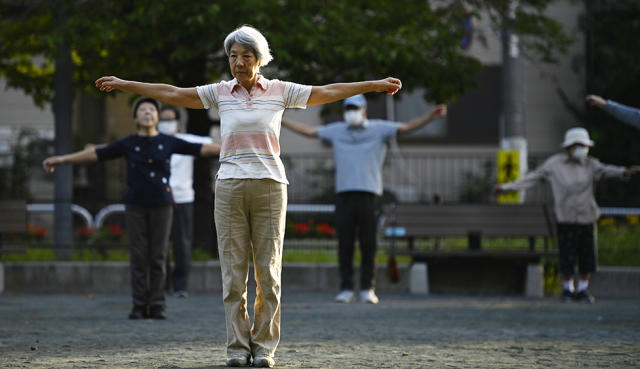Japan's aging population is not a recent phenomenon but rather a consequence of a declining birth rate and increasing life expectancy. The country has one of the world's lowest fertility rates, with fewer babies being born each year to replace the aging population. Simultaneously, advancements in healthcare have led to longer lifespans, contributing to the rise in the number of elderly citizens. While a longer life expectancy is undoubtedly a positive outcome, it presents unique challenges for the country's infrastructure and society.
The statistic that one in 10 people in Japan is now aged 80 or older is a stark reflection of this demographic shift. This demographic group, often referred to as the "old-old," is a demographic subset facing distinct challenges. With longevity comes a higher likelihood of age-related health issues, including chronic diseases and cognitive decline. This places a significant burden on Japan's healthcare system, which must adapt to provide comprehensive care for the elderly population.
The aging population in Japan has profound economic implications. As more citizens retire and enter old age, there is a shrinking working-age population to support them. This not only strains the pension system but also hampers economic growth. A declining workforce can lead to a reduction in productivity and innovation, which are crucial for a nation's economic competitiveness on the global stage. To combat this, Japan must consider strategies to encourage workforce participation among older citizens and explore immigration policies to supplement the labor force.
The increasing number of elderly citizens places significant demands on Japan's healthcare system. The "old-old" population often requires specialized medical care, long-term care, and support services. This has led to a shortage of healthcare professionals trained to address the unique needs of the elderly. Additionally, there is growing pressure to expand healthcare infrastructure and ensure that it remains financially sustainable in the face of rising healthcare costs.
Japan's demographic transformation also leads to significant social changes. The traditional family structure, which relied on multiple generations living under one roof, is shifting. With fewer children and more elderly citizens, families are facing challenges in caring for their aging relatives. This has given rise to a burgeoning eldercare industry and a growing interest in community-based care solutions.
Japan's government, academic institutions, and the private sector have recognized the urgent need to address the challenges posed by the aging population. The country has become a global leader in developing innovative solutions to support its elderly citizens. These innovations range from robotics and automation in eldercare to the promotion of active and healthy aging through exercise and nutrition programs.
Japan's demographic challenge of one in 10 people aged 80 or older reflects a profound transformation in the country's population composition. While it is a testament to the success of healthcare and longevity, it also poses numerous challenges. These include economic implications, strains on the healthcare system, and the need for social and cultural adaptations. To navigate this demographic shift successfully, Japan must continue to invest in innovative solutions that promote a high quality of life for its elderly citizens while ensuring the sustainability of its society and economy. The rest of the world can also draw valuable lessons from Japan's experience as they too face the challenges of an aging population in the decades to come.











0 Comments